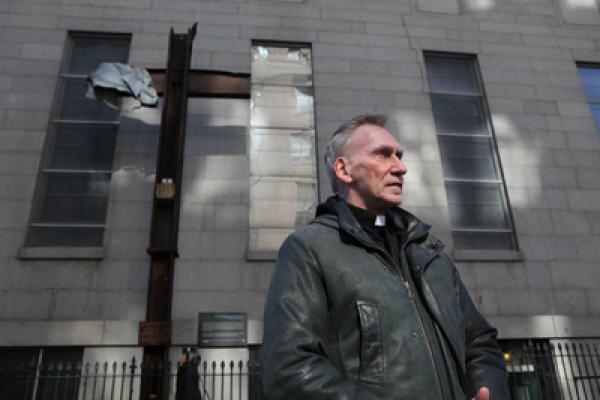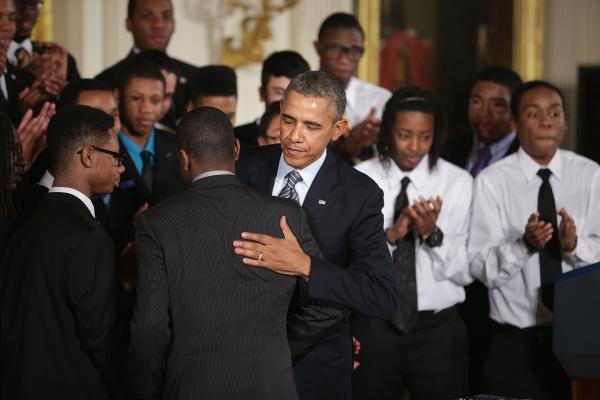A call for greater acceptance of gays and lesbians has put African and Western churches on a collision course, as some African clerics liken mounting criticism from the U.S. and Europe to a new wave of colonization by the West.
“Homosexuality is equivalent to colonialism and slavery,” said one participant.
“We feel it’s like a weapon of mass destruction,” said another.
“It is not biblical and cannot bring blessing to Christians,” said a third.
Gitonga, a powerful East African Pentecostal church official, is among a group of Kenyan leaders who have launched “Zuia Sodom Kabisa,” Kiswahili for “Stop Sodom Completely.” The campaign seeks 1 million signatures to petition legislation to criminalize homosexual acts in Kenya.
Atheists are challenging plans to include a 17-foot, cross-shaped beam that became a famous symbol of Ground Zero after 9/11 in a display at the national memorial museum that is scheduled to open this spring.
Last year, a lower court rejected a lawsuit filed in 2011 by the New Jersey-based American Atheists that said the cross was an unconstitutional establishment of religion.
In his appeal, Kagin said his organization is seeking a similar object to be displayed at the museum, something like a plaque that would say “atheists died here, too.”
Son of God is Hollywood’s take on the life and teachings of Jesus of Nazareth. While the producers clearly tried hard to use modern filmmaking techniques to bring scripture to the big screen, the attempt fell flat somewhere between the use of action-sequences, swelling music reminiscent of old Westerns, and unconvincing acting — Jesus is played by Portuguese actor Diogo Morgado, who managed to look irritatingly self-satisfied for most of the movie.
Since faith is such a personal, spiritual experience, it begs the question: Is it possible to make the life and ministry of Jesus into a film that accurately reflects Christianity, or does such an effort cheapen beliefs?
A year ago this week, news headlines were filled with the story of Hadiya Pendleton. She was a 15-year-old band majorette from Chicago, who would march in the 2013 Presidential Inaugural Parade with her school. Just days after marching in the nation’s capital, Hadiya returned to Chicago’s south side where she was murdered by gunfire in Marsh Park after seeking shelter from a rainstorm. First Lady Michelle Obama attended the funeral, and Hadiya’s parents turned advocates and supporters of commonsense gun laws. The murder of Hadiya Pendleton became a painful representation of the nation’s broken gun laws and the effect that gun violence has had on the millennial generation.
Generation Progress and The Center for American Progress recently released a report: “Young Guns: How Gun Violence is Devastating the Millennial Generation.” According to the report, “American children and teenagers are 4 times more likely to die by gunfire than their counterparts in Canada, 7 times more likely than young people in Israel, and 65 times more likely to be killed with a gun than children and teenagers in the United Kingdom.” These statistics are startling and call for renewed attention to what this study has called a public health crisis.
By turning water into wine, Jesus used his first miracle to keep the wedding feast going.
Jesus said to them, "Fill the jars with water." And they filled them up to the brim. He said to them, “Now draw some out, and take it to the chief steward.” So they took it. When the steward tasted the water that had become wine and did not know where it came from (though the servants who had drawn the water knew), the steward called the bridegroom and said to him, “Everyone serves the good wine first, and then the inferior wine after the guests have become drunk. But you have kept the good wine until now.” (John 2:7-10)
But maybe Jesus won't be the only one reigniting the party with homemade wine. A new device called The Miracle Machine promises to make pre-aged wine in about three days.
It’s called The Miracle Machine (of course) and it’s basically a Sodastream for wine. Like its under-21 counterpart, the Miracle Machine uses water, yeast, grape concentrate, and finishing powder packets to create decent DIY-quality vino, virtually out of thin air. Just connect the machine to its corresponding iOS or Android app, input all the ingredients, and, in true miracle fashion, wait three days for your wine to rise triumphantly from the ashes of discarded flavor packets and tap water.
Just to be clear, Jesus didn't have to wait three days for his wine.
I have a vivid memory of my first visit to Sing Sing Correctional Facility in upstate New York. Some young inmates were reading my book, The Soul of Politics, as part of a seminary program in the infamous prison, and they invited me to come discuss it with them. The warden gave me and about 50 young men several hours together, and I will never forget the comment one of them made: “Jim, most of us here are from just five or six neighborhoods in New York City. It’s like a train that starts in my neighborhood, and you get on when you are 9 or 10 years old. The train ends up here at Sing Sing.” But then he said, “Some of us have been converted, and when we get out, we’re going to go back and stop that train.”
That’s exactly what President Obama’s launch of “My Brother’s Keeper” is calling us to do: to stop the train that is taking young men of color from broken economies, schools, families, and lives into despair, anger, disengagement, trouble, violence, crime, prison, and even death at an early age. This is an urgent and long-overdue moral call that must supersede all our political differences.
While the president’s agenda has always included goals intended to help all Americans, this launch was painfully, powerfully, and prophetically specific.





